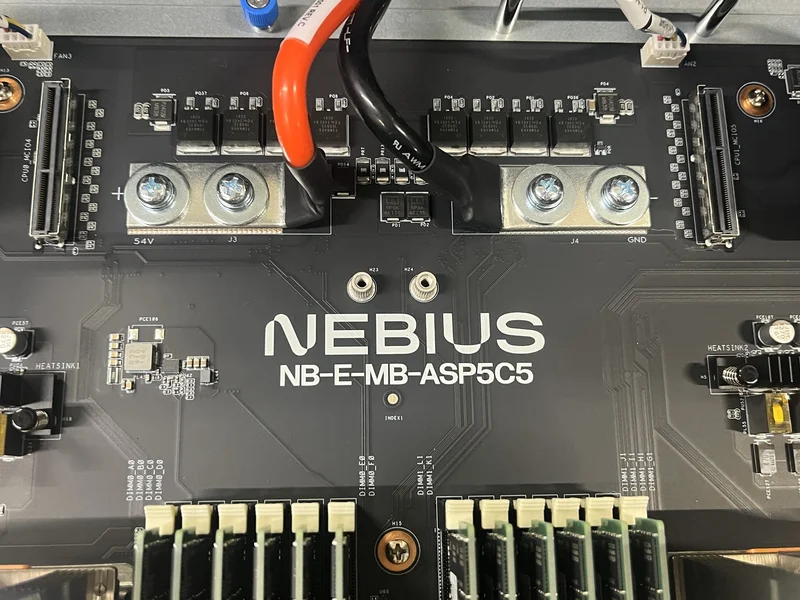AI Inference Wars: Is Nebius Token Factory a Real Contender?
Nebius Group, formerly known as Yandex, is making waves in the AI infrastructure space with its newly launched Nebius Token Factory. The platform aims to provide production-ready AI inference at scale, leveraging open-source models and Nebius's dedicated AI infrastructure. The company claims to offer a solution that balances speed, reliability, and cost efficiency. But can it truly compete with established players like CoreWeave and the ever-growing cloud offerings of tech giants?
Nebius is positioning Token Factory as a platform that empowers companies to move beyond closed models and embrace the flexibility of open-source AI. They highlight support for major open models like NVIDIA Nemotron, DeepSeek, and Llama, while also allowing customers to host their own custom models. This approach, they argue, unlocks innovation and better economics. Prosus, for example, claims a 26x cost reduction using Nebius Token Factory compared to proprietary models. It’s a compelling claim, but the devil's always in the details. What specific proprietary models are they comparing against? What's the workload? Without that, it's just marketing fluff.
Nebius vs. CoreWeave: A Numbers Game
The comparison to CoreWeave is inevitable. Both companies are cloud-based GPU providers fueled by Nvidia GPUs, but their approaches differ. Nebius aims for a "full stack" approach, integrating its GPUs with managed services. CoreWeave, on the other hand, focuses primarily on GPU-intensive workloads. Nebius boasts a 462% revenue increase in 2024, reaching $118 million, while CoreWeave reported a staggering 738% jump to $1.92 billion. However, it’s crucial to note that Nebius's adjusted EBITDA was negative $266 million, while CoreWeave's soared to $1.22 billion. Better Artificial Intelligence Stock: Nebius Group vs. CoreWeave
Here’s where things get interesting. Nebius's market cap stands at around $31.4 billion, valuing it at 7 times its projected 2027 sales. CoreWeave, with a market cap of $72.5 billion, trades at only 4 times its estimated sales for the same year. While Nebius is projected to grow faster (233% CAGR vs. CoreWeave's 112%), its higher valuation raises questions. Is the market overvaluing Nebius's potential, or is CoreWeave undervalued?
Nebius currently operates a single data center in Finland (a fact they don't exactly shout from the rooftops), supplemented by colocation deals. They're building a second first-party data center in New Jersey. CoreWeave, in contrast, operates 33 first-party data centers across the U.S. and Europe. The difference in physical infrastructure is significant and likely contributes to CoreWeave's higher revenue and EBITDA. It begs the question: can Nebius's colocation strategy truly compete with CoreWeave's dedicated data centers in the long run?

And this is the part of the report that I find genuinely puzzling. Nebius secured a massive $17.4 billion AI infrastructure deal with Microsoft. CoreWeave generates about 70% of its revenue from Microsoft and has existing contracts with OpenAI (Microsoft's AI darling) worth $22.4 billion. So, Microsoft is hedging its bets, funding both players significantly. That's not necessarily bad, but it does suggest Microsoft sees value in both approaches.
Token Factory: A Closer Look
Nebius Token Factory aims to streamline the post-training lifecycle, turning open-source model weights into production-ready systems. They tout integrated fine-tuning and distillation pipelines that can cut inference costs and latency by up to 70%. They also emphasize enterprise-grade security and compliance, with features like Teams and Access Management, Single Sign-On (SSO), and project separation.
But let's be real: every cloud provider claims enterprise-grade security. The key is independent validation and adherence to industry standards. Nebius highlights SOC 2 Type II, HIPAA, ISO 27001, and ISO 27799 certifications. That's a good start, but continuous monitoring and proactive threat detection are equally crucial.
One of the most interesting aspects of Token Factory is its zero-retention inference in EU or US datacenters, supporting strict data-residency requirements. This is a significant advantage for companies dealing with sensitive data and regulatory compliance. CoreWeave, while expanding rapidly, may not offer the same level of data residency control across all its locations.
Is Nebius Just Riding the AI Hype Train?
Nebius has successfully rebranded itself as an AI company, and its stock price reflects that. But beneath the surface, questions remain. Can Nebius truly compete with established players in terms of infrastructure and scale? Is its focus on open-source models a genuine differentiator, or just a marketing ploy? The company's negative EBITDA and reliance on colocation deals raise concerns about its long-term profitability and sustainability. While the Microsoft deal provides a significant boost, Nebius needs to demonstrate that it can translate that investment into tangible results.

